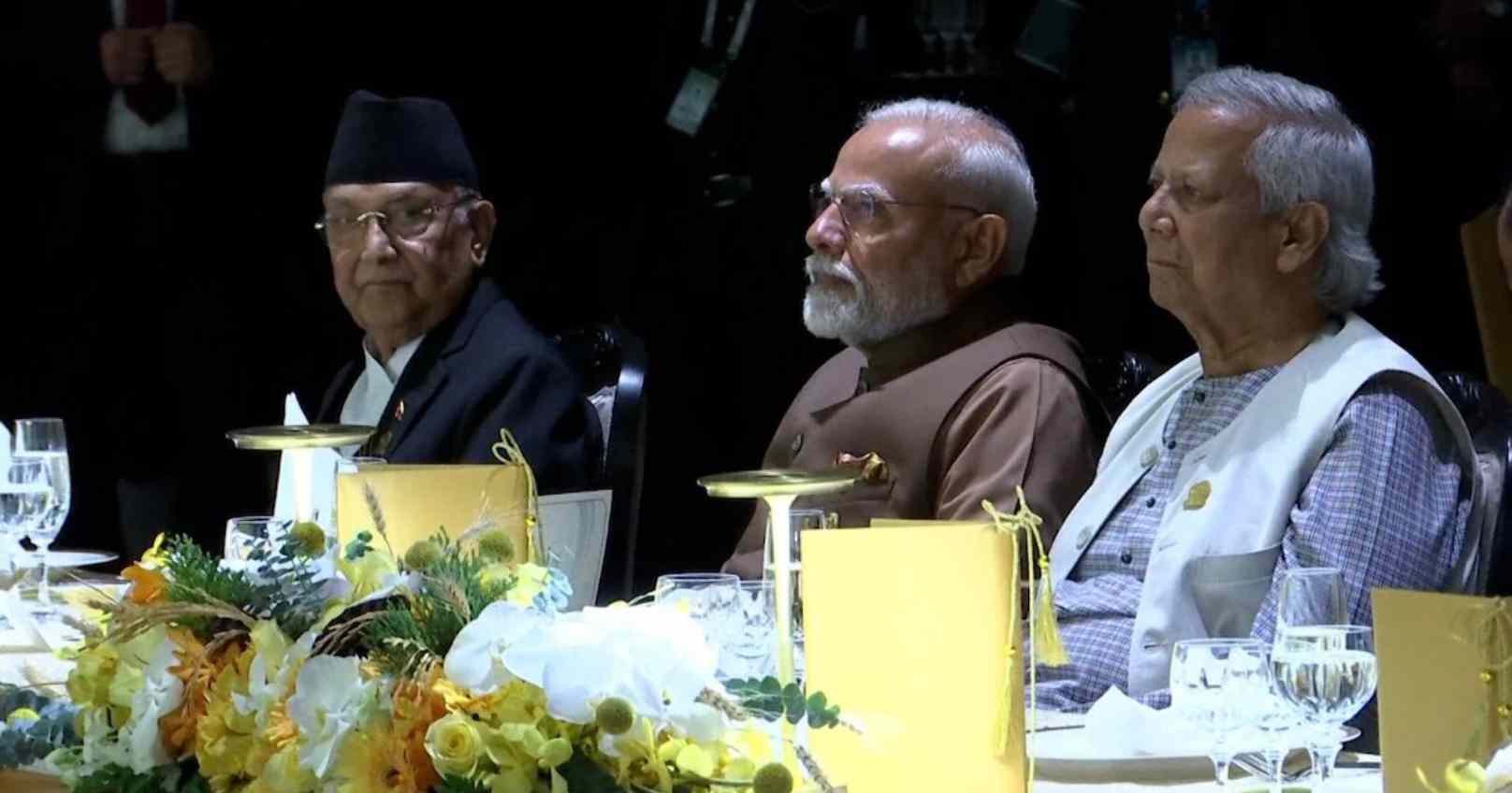Indian Prime Minister Narendra Modi and Bangladesh’s interim Chief Advisor Muhammad Yunus were seen seated next to each other during an official dinner hosted by Thai Prime Minister Paetongtarn Shinawatra in Bangkok on Thursday. The dinner welcomed participating leaders attending the ongoing BIMSTEC Summit.
Images shared on the official X handle of the Chief Advisor of Bangladesh showed both leaders side by side at the dinner table, a moment being closely watched due to the potential for a first bilateral engagement between India and Bangladesh’s interim leadership on the sidelines of the summit.
Deputy Press Secretary Abul Kalam Azad of the Chief Advisor’s office told Bangladeshi media that the two leaders "met each other" at the high-level dinner.
Dhaka has expressed interest in arranging a formal meeting between Prime Minister Modi and Advisor Yunus during the summit. With Bangladesh set to assume the BIMSTEC chairmanship on Friday, such a meeting would hold symbolic and strategic significance.
Khalilur Rahman, the High Representative for Rohingya and Priority Issues in the interim government, told reporters on Wednesday that the upcoming summit would provide an opportunity for Yunus to interact with other BIMSTEC leaders. He added that a request had been sent to New Delhi for bilateral talks with India. “We see a realistic possibility of this meeting taking place,” he noted.
Just last week, PM Modi sent a message to Yunus on Bangladesh’s National Day, emphasizing the value of mutual respect and the countries’ shared past — including the events of the Liberation War. “India remains committed to strengthening our partnership, built on shared goals of peace, prosperity, and mutual understanding,” he wrote.
India has grown increasingly concerned about the internal situation in Bangladesh since the fall of Sheikh Hasina’s Awami League government in August 2024. Under the new leadership of Yunus, New Delhi has raised red flags over rising extremism, the release of radical elements, and weakening law enforcement.
“We support a stable, peaceful, and inclusive Bangladesh where issues are addressed democratically and through participatory elections,” Indian foreign ministry spokesperson Randhir Jaiswal has said repeatedly. “The law and order situation has worsened, and we are particularly disturbed by the release of convicted extremists.”
The Indian government has also expressed worry over the interim administration’s apparent leniency towards Islamist factions, and the easing of visa restrictions for Pakistani nationals — a move that has reportedly enabled the return of several fugitives with links to terrorism.
Violence against minority groups, especially Hindus and members of the Ahmadiyya community, has escalated in recent months. India’s Ministry of External Affairs has voiced frustration over the slow pace and shallow depth of investigations into these incidents.
“We’ve emphasized that it’s the interim government's duty to ensure the safety of minority communities and their places of worship,” said Jaiswal. “Out of 2,374 incidents reported between August 5, 2024, and February 16, 2025, only 1,254 were verified by police, and most of those were dismissed as politically motivated. We expect real accountability, not selective investigations.”
In a separate conversation in Muscat, External Affairs Minister S. Jaishankar also cautioned Bangladesh’s Foreign Affairs Advisor Touhid Hossain against allowing terrorism to be normalized in the region.







